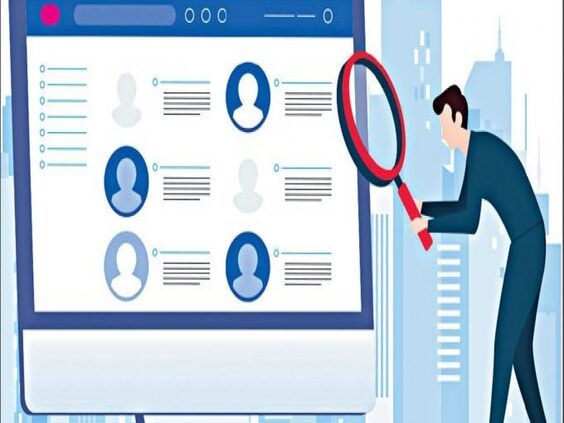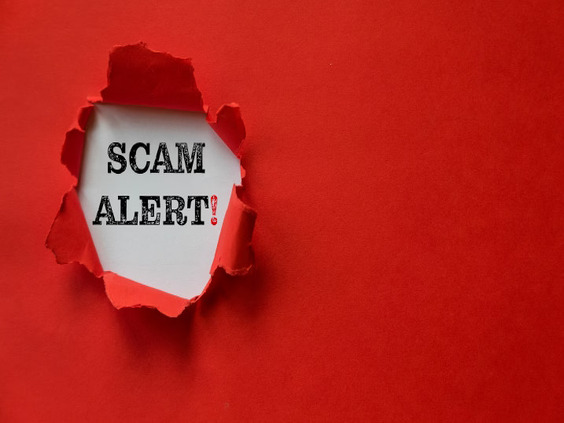

In the age of smartphones and selfies, fake social media profiles have become a silent but serious threat—especially for policemen. Whether you wear the stars on your shoulder or patrol the streets, your presence online is as significant as your badge. But with great presence comes greater risk.
Fraudsters today aren’t just targeting celebrities or politicians; they are increasingly impersonating law enforcement officers to deceive the public, extract money, or tarnish reputations. As custodians of law and order, policemen must understand the magnitude of this digital threat—and be armed with the right cyber hygiene practices.
What Are Fake Social Media Profiles?
Fake social media profiles are accounts created using someone else's identity, often blending real and fabricated information. These profiles can mimic your name, photo, badge number, and even your official designation to appear authentic.
Common Uses of Fake Police Profiles:
- Scamming the public by pretending to collect fines or bribes.
- Spreading misinformation or political propaganda in your name.
- Sending inappropriate content to damage your reputation.
- Contacting victims or suspects to extract confidential information.
The Threat Landscape: Real Stats, Real Risks
- According to a 2023 INTERPOL report, over 35% of impersonation cases on social media involved uniformed services, including police officers.
- India’s Cyber Crime Reporting Portal received more than 50,000 complaints in 2023 related to impersonation on social platforms.
- Facebook and Instagram combined removed over 2 billion fake accounts in a single quarter of 2023—but many still slipped through.
The problem is real—and growing. Policemen, who often enjoy local trust and public visibility, make for high-value targets.
How Fake Profiles Are Created: The Modus Operandi
1. Information Gathering
Fraudsters scour your social media accounts, media coverage, or even WhatsApp group chats to extract:
- Your name and photo in uniform
- Department name
- Mobile number or email
- Your jurisdiction or role
2. Profile Duplication
They use stolen photos and mimic your writing style to create a mirror image of your profile.
3. Scam Execution
Using this identity, they:
- Send friend requests to colleagues, citizens, and officials
- Ask for money, "donations," or personal information
- Spread harmful links or malware to damage networks
Why Police Officers Are Prime Targets
- Public visibility makes you easier to research
- Authority and respect increase the chances of victim compliance
- Lower digital literacy in rural or semi-urban areas makes impersonation harder to spot
- Victims rarely verify if they are actually speaking to a real officer
Action Plan: How Policemen Can Safeguard Their Digital Identity
1. Use Official Handles Only
Always maintain an official verified profile for public communication. Do not mix personal and professional profiles.
Pro Tip: Try to get your official accounts verified with a blue tick on platforms like Facebook, Instagram, and Twitter (X). It increases trust and deters impersonators.
2. Strengthen Your Privacy Settings
On Facebook, Instagram, and LinkedIn:
- Restrict who can see your posts
- Hide your friend list
- Disable profile picture download
- Limit who can send you friend requests
3. Be Smart with Photos
- Avoid posting solo pictures in uniform publicly.
- Disable photo-tagging by unknown users.
- Never post pictures of IDs, vehicles, or official documents.
Stat Check: In 80% of impersonation cases, fraudsters used publicly available photos from Facebook and Instagram.
4. Verify Friend Requests
- Always cross-verify profiles that send requests, even if the name and photo seem familiar.
- If something feels off, it probably is. Ask in person or over a verified channel.
5. Warn the Public
Regularly educate your local community to beware of:
- Requests for fines or payments over UPI
- Messages with suspicious links claiming to be from police
- Calls or messages from accounts claiming to be “Inspector So-and-so”
Use your verified profile to post public warnings and keep the community alert.
6. Enable Multi-Factor Authentication (MFA)
Use MFA for your social accounts. This adds a second layer of security—usually a code sent to your phone—making it harder for attackers to hijack your account.
7. Report Suspicious Activity Immediately
- Report fake accounts on the platform.
- Lodge complaints at cybercrime.gov.in.
- Call the Cyber Helpline: 1930 or 155260
- Inform your department’s cyber cell for coordinated action
Real-Life Case: Fake SI Profile Scams Villagers
In 2023, a fake Facebook account posing as a Sub-Inspector from Tamil Nadu messaged villagers in Salem district, claiming they were under investigation and needed to pay ₹5,000 via UPI to avoid FIRs. Over 40 villagers were duped before one finally contacted the real SI.
Lesson: If it can happen to one officer, it can happen to anyone.
Clean-Up Tips for Officers Already Affected
If a fake profile of yours is already in circulation:
- Report it on the platform using the “Impersonation” option.
- Take screenshots for legal evidence.
- Alert your department so they can issue a public warning.
- Inform media houses or local press to share verified updates.
- File a complaint at cybercrime.gov.in or your nearest cyber cell.
Conclusion: A Digital Beat to Patrol
As protectors of the physical world, it’s time our khaki force becomes defenders of the digital world too. Fake social media profiles are not just a personal threat—they endanger public trust in the entire police system. By staying informed, maintaining cyber hygiene, and educating the public, we can tackle this modern-day menace with the same courage we show on the ground.
Every officer in uniform must also wear a digital shield. Your identity is your power—protect it.
Cyber Hygiene Foundation
- CyberAwareness CyberSafety PersonalDataProtection SafeInternetForAll CyberHygieneForAll ITSecuritySolutions
You May Also Like It
Understanding the Growing Threat of Loan Frauds Loan frauds have become
In your role as protectors of law and order, you
Leave A Comment
Don’t worry ! your e-mail address will not published.








0 Comments